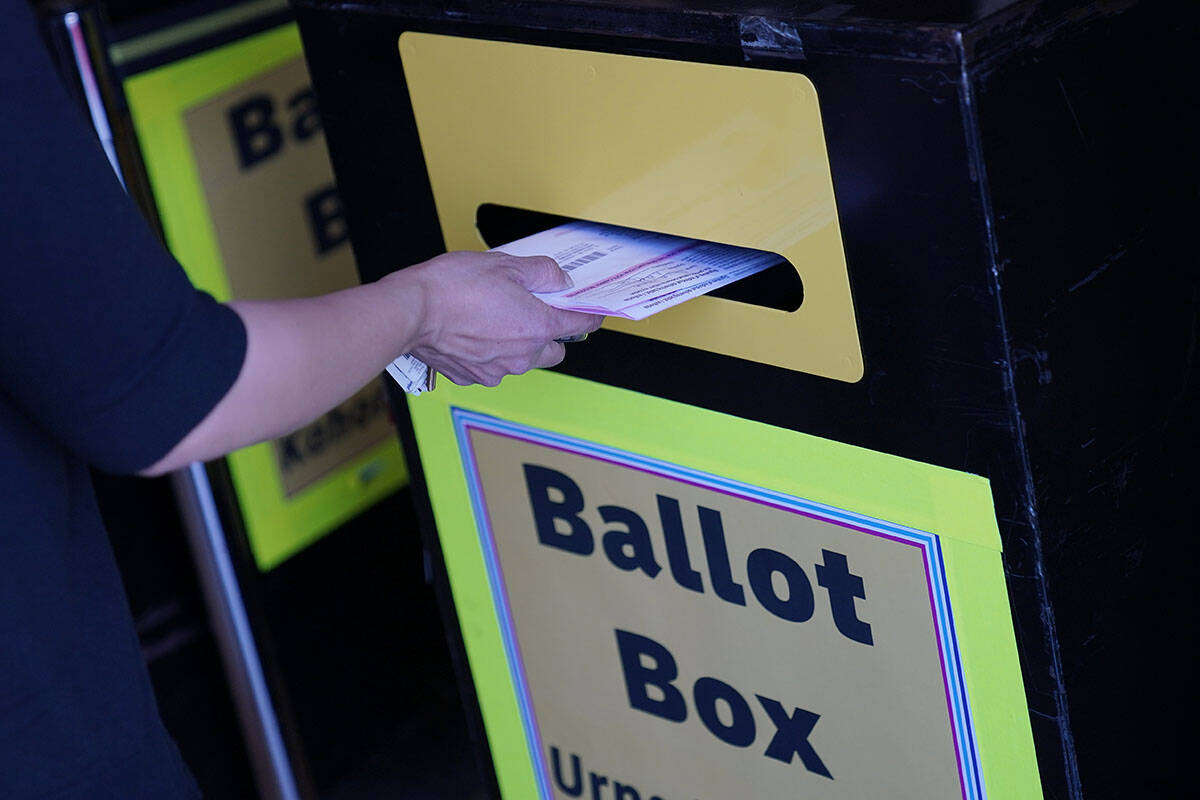Review-Journal endorsements: Statewide ballot questions
Candidates aren’t the only ones seeking voter approval this November. Nevadans will have the opportunity to weigh in on three constitutional amendments as well.
Question 1 bills itself as the Equal Rights Amendment. It would prohibit state and local governments from denying or abridging rights based on a host of factors. The list includes race, color, creed, sex, sexual orientation, gender identity or expression, age, disability, ancestry or national origin.
That may sound benign, but it will result in unintended consequences involving conflicts between various “protected” classes. Enactment of this vaguely worded amendment would send the state into uncharted legal territory. A minimum drinking or driving age is discriminatory? In addition, some of this is duplicative and already codified in federal law.
Broad initiatives such as this typically become the playground of lawyers hoping to win from the judiciary what the people’s elected representatives are unwilling to grant. Vote no on Question 1.
If Question 2 passes, the minimum wage set by the state constitution would increase to $12 an hour for all employees in 2024. It’s now at $10.50 an hour for businesses that don’t offer health benefits. The current labor shortage means that many entry-level jobs in Clark County already pay above $12 an hour. This is a reminder that government mandates aren’t needed to increase starting wages. But when a recession comes, a higher minimum wage will limit entry-level jobs, potentially increasing unemployment among the unskilled. Markets are far more efficient at setting wages than government edicts. Voters should reject Question 2.
If you’re a fan of confusion and delays, Question 3 is right up your alley. This constitutional amendment, which needs voter approval this year and in 2024, would institute ranked-choice voting. Backers prefer to highlight that it would also create open primaries, but it’s much broader than that.
This scheme would eliminate party primaries. Instead, the top five vote getters in an open primary would advance to the November election. At that point, a complicated — and even radical — new election mechanism would kick in.
Voters would then select their first choice and rank the remaining candidates. If no one receives 50 percent, the candidate with the lowest vote total is eliminated. Those who selected that candidate in the No. 1 spot would have their votes recalculated with the second choice moving up to the top. That continues until someone wins a majority. This format could delay the results for weeks, undermining confidence in elections. Voters who fail to list a full slate of candidates could be disenfranchised.
There are many things Nevada needs, but a more confusing election system isn’t one of them. Reject Question 3.

















